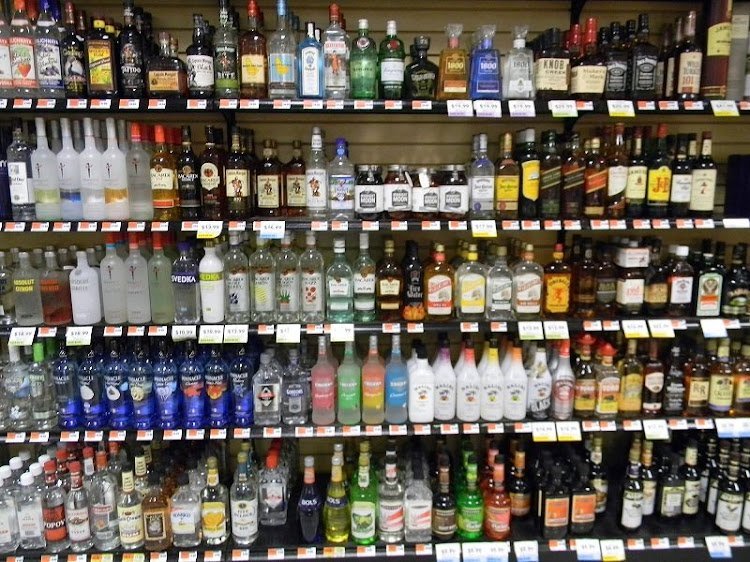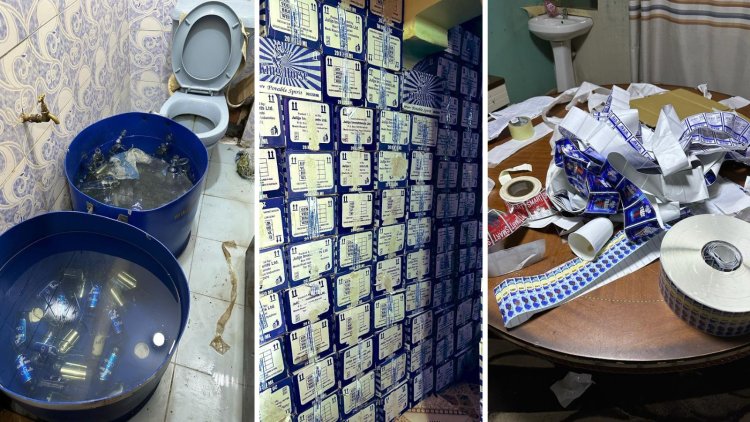A Guide To Checking If Your Favourite Alcoholic Drink Is Fake
With the festive season approaching where drinks are expected to be in mass circulation, authenticating the genuineness of a drink by Kenyan consumers is imperative.

In recent weeks, Kenyans have witnessed the market get flooded with counterfeit alcoholic drinks, with the Directorate of Criminal Investigations (DCI), police among other authorities conducting sting raids on dens harbouring fake alcohol disguised in bottles with labels from popular brands.
Case in point, you are with your friends on a night out and take a sip of your favourite drink. The first sip tastes like metal and just to confirm, you take a second sip and wonder if it was brewed within underground dens instead of verified distillers.
With the festive season approaching where drinks are expected to be in mass circulation, authenticating the genuineness of a drink by Kenyan consumers is imperative. This is because counterfeit products pose health risks and undermine the reputation of genuine brands.

A consignment of fake alcohol recovered by DCI detectives on October 18, 2023. /DCI
Fortunately, there are several features available to help consumers verify genuine alcohol. Viral Tea takes a look at various methods to determine the genuineness of alcohol in Kenya:
Bottle and Label Inspection
Check the bottle’s quality, including the material, cap, and seal. Genuine drinks have consistently high-quality packaging. In case of a change in packaging, the manufacturer usually lets the public know.
Inspect the label for any signs of tampering, such as mismatched colours, uneven printing, or peeling edges. Genuine products have well-designed and securely attached labels.
Barcodes, QR Codes & Soma Label
Scan the barcode or QR code on the bottle using a smartphone or a dedicated scanner. Genuine alcohol has valid and consistent codes.
In Kenya, the most used form of verification is the Kenya Bureau of Standards (KEBS) sticker and barcode which are often difficult to replicate and indicate authenticity.
Alternatively, one can use the Soma Label system courtesy of the Kenya Revenue Authority (KRA), which is a free application designed to enable the public to authenticate consumer products. This initiative is part of KRA’s comprehensive strategy to bolster market oversight and combat the proliferation of counterfeit goods.
Soma Label has a mobile app that comes in handy when one is purchasing goods in local stores. In accordance with the law, a range of products are mandated to bear excise tax stamps. These products include wines, spirits, beer, bottled water, juices, soda, energy drinks, cigarettes, and other tobacco items.
How To Use Soma Label App
- Download the Soma Label app from the Google Play Store and Apple App Store (for iPhone users)
- After accepting the Terms & Conditions, click on the “scan” option.
- Click on “Scan QR Code” OR “Scan Data Matrix” depending on the type of sticker and align the code within the frame to scan
- Also, scan the barcode
- You will be asked for confirmation of the sticker. If it is the right sticker, click yes. The information about the drink will be displayed
- If there is an issue with the stamp, report it.
KRA Tax stamps are equipped with multiple security features and are individually numbered with encrypted data codes. The encrypted data codes on each stamp are seamlessly integrated into a track and trace system.
The system maintains individualized information for each product. Track and trace systems oversee the progression of raw materials and components as they move through the supply chain, through manufacturing, distribution, and into the hands of consumers.
This system provides specific insights into the exact company plant and production sector where a product is manufactured.
It also facilitates the tracing of a product’s journey from raw materials through manufacturing to the consumer, or even in the reverse direction. That is, from the consumer back to the factory and the raw materials.

An illustration of the Soma Label app. /TECHWEEZ
Check Expiry Date
Boxed wines, beers and cream liqueurs have expiry dates. Manufacturers are required by law to display the expiry date on the packaging, making it essential for consumers to carefully read and verify it.
By avoiding expired drinks, you can protect their health and ensure they are purchasing a drink that is safe to consume. Taking the time to check the expiry date is an important step in making informed choices to ensure the genuineness of the drink.
Check Alcohol Content
To verify the authenticity of liquor, you can examine its alcohol content.
In Kenya, the law stipulates that alcoholic beverages must not exceed 60 per cent alcohol content. If the measured alcohol content exceeds this limit, it may indicate that the liquor is counterfeit.
Taste, Smell and Colour
This method is subjective but can be useful. Familiarize yourself with the taste, smell and colour of the genuine drink by trying it from a reliable source.
If the drink’s taste, smell or colour significantly differs, it could be an indication of a counterfeit product.
Purchase from Trusted Sources
Buy drinks from the manufacturer or authorized and reputable outlets. These sources are more likely to sell genuine products.

 admin
admin 




